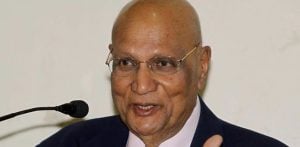"build AI for India, and with India."
OpenAI has announced plans to open its first office in India as it accelerates efforts to expand in one of the world’s fastest-growing AI markets.
The company announced that it would set up a local team and establish a corporate office in New Delhi in the coming months.
The move comes just days after OpenAI launched a ChatGPT plan priced specifically for Indian users.
The decision builds on recent hiring in the region.
In April 2024, OpenAI appointed former Truecaller and Meta executive Pragya Misra as its public policy and partnerships lead in India. Former Twitter India head Rishi Jaitly also joined as a senior advisor to help guide government discussions on AI regulation.
India is the world’s second-largest internet and smartphone market after China, making it a key battleground for OpenAI against rivals such as Google, Meta and AI start-up Perplexity.
The company said it has begun hiring a local team to “focus on strengthening relationships with local partners, governments, businesses, developers, and academic institutions”.
It added that it aims to adapt its tools for the Indian audience and even design features specifically for the country.
OpenAI CEO Sam Altman said in a statement: “Opening our first office and building a local team is an important first step in our commitment to make advanced AI more accessible across the country and to build AI for India, and with India.”
OpenAI will also host its first Education Summit in India in August and its first Developer Day in the country later in 2025.
However, OpenAI faces challenges in India.
Like other AI players, it must find ways to convert free users into paying subscribers in a price-sensitive market.
OpenAI recently announced ChatGPT GO, which is priced at Rs. 399 (3.40) per month.
The launch came days after Perplexity struck a deal with Bharti Airtel to give more than 360 million subscribers access to Perplexity Pro for 12 months.
OpenAI also faces legal issues. In November, Indian news agency Asian News International (ANI) sued the company for allegedly using its copyrighted content without permission. A group of Indian publishers joined the case in January.
Despite hurdles, India’s government is pushing AI adoption through its IndiaAI Mission.
Altman added: “India has all the ingredients to become a global AI leader: amazing tech talent, a world-class developer ecosystem, and strong government support through the IndiaAI Mission.”
IT Minister Ashwini Vaishnaw welcomed the company’s move.
He said:
“OpenAI’s decision to establish a presence in India reflects the country’s growing leadership in digital innovation and AI adoption.”
“As part of the IndiaAI Mission, we are building the ecosystem for trusted and inclusive AI, and we welcome OpenAI’s partnership in advancing this vision to ensure the benefits of AI reach every citizen.”
Industry experts note that securing enterprise customers in India is often harder than in other Asian markets.
A Silicon Valley-based investor said that this is one reason why many AI companies do not prioritise India early.
Still, with its vast user base, government backing and emerging developer ecosystem, India remains central to OpenAI’s ambitions.






























































